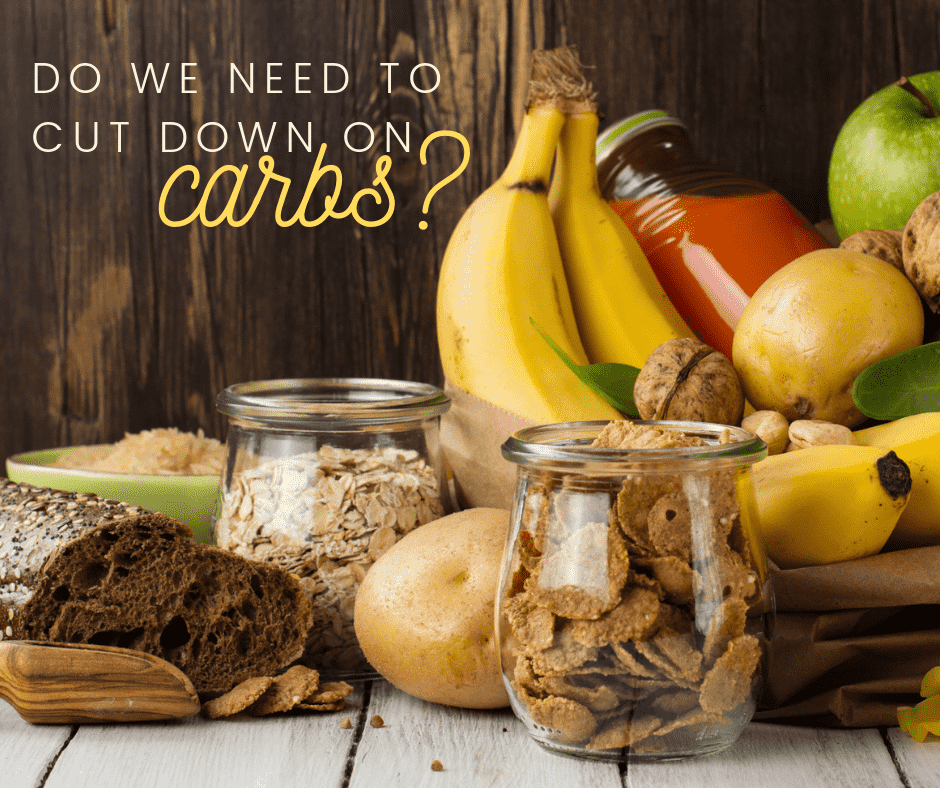Do we need to cut down on carbs?

This question has been a hot topic in the health debate for quite some time now, and there is certainly a lot of mixed messages and conflicting advice out there in answer to it. What doesn’t help is the rise in popularity of diets that are centered around restricting carbohydrate intake in order to lose weight and for better general overall health. On the surface, it seems to suggest that carbohydrates are to be avoided and they may not be so good for health after all. This article will help to clear up the controversy by looking at the different types of carbohydrates and the role they play in our diet and our health.
Carbohydrate restrictive diets
The Keto and Atkins diets are undoubtedly the two most popular and effective diets around today, both of which involve a significant reduction in carbohydrate intake. There’s often a keto vs. Atkins debate, but both restrict carbs and can be examined together. While this dietary approach has been linked to weight loss, increased energy, improved heart health, and blood sugar control; there remains no doubt that carbohydrates are an important component of a healthy and balanced diet. However, the real key lies in what type of carbohydrates you eat and how much.
High GI vs. low GI carbs
You may be familiar with the terms high and low glycaemic index, particularly if you are diabetic or are on some form of special diet related to a health condition. Glycaemic index refers to the amount of time it takes for your body to break down the carbohydrates into sugars. The longer this process takes, the better it is for your health. This is why low GI foods – also known as ‘complex carbohydrates’ – are the best form of carbohydrates to eat, as your body breaks these down slower. As a result, you stay fuller for longer and your blood sugar is kept stable.
The affects of high GI carbs on health

On the contrary, high GI foods are broken down quickly, which results in an increased appetite and a spike in blood sugar. Unhealthy carbohydrates such as biscuits, cakes, pastries, and white starchy foods have little to no nutritional value and can lead to weight gain. It can even lead to a number of chronic diseases such as diabetes heart disease, cancer, and Alzheimer’s. Some research even suggests a link between the consumption of unhealthy carbohydrates with depression and anxiety.
Eating healthy carbohydrates in moderation

The majority of your carbohydrate consumption should always come from healthy sources of carbohydrate, such as: most fruits and veggies, wholegrain foods, and some dairy. Not only do these foods contain complex/low GI carbs and constitute the body’s main source of energy, but they also contain essential vitamins and nutrients such as fibre, calcium, iron, and a whole range of vitamins including B vitamins.
So do we need to cut down on carbs?
The answer to this question depends entirely on the kind of carbohydrates that you are eating. If you are eating low GI foods that contain complex carbohydrates as part of a healthy and balanced diet, which also contains the right amounts of other food groups such as protein, fats, and dairy – then yes, carbs are an important component of a balanced diet. Unhealthy carbohydrates on the other hand, which are broken down quickly by the body, should only be consumed in small quantities as a treat.

